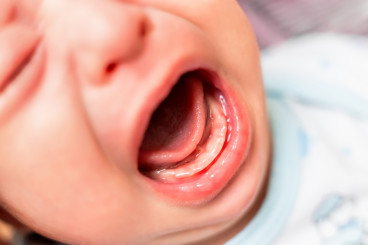Temporomandibular Joint Dysfunction (TMD or TMJD)
Temporomandibular joint dysfunction, commonly referred to as TMD or TMJD, is a collective term describing a group of conditions that affect the temporomandibular joint (TMJ) and the surrounding muscles and tissues. The temporomandibular joint is the hinge-like joint that connects the lower jaw (mandible) to the temporal bone of the skull, allowing for essential functions such as chewing, speaking, and yawning.
Ways of TMD
TMD can manifest in various ways, including pain, clicking or popping sounds, and limited or painful jaw movement. The condition can arise from a combination of factors, including injury, stress, teeth grinding (bruxism), and structural or functional problems within the joint itself.
Causes of TMD
The primary causes of TMD can be categorized as follows:
- Injury or trauma: Sudden impact or trauma to the jaw, such as from a car accident, a blow to the face, or even extensive dental work, can damage the TMJ and lead to TMD.
- Teeth grinding and clenching: Involuntary grinding or clenching of the teeth, often during sleep, can put excessive stress on the TMJ and surrounding muscles, leading to pain and dysfunction.
- Stress and tension: High levels of stress can cause the muscles around the TMJ to become tense and overactive, contributing to TMD.
- Structural or functional problems: Issues with the alignment or movement of the TMJ, such as a displaced disc or arthritis, can also result in TMD.
Symptoms of TMD
The symptoms of TMD can vary widely, but some of the most common include:
- Pain: A dull, aching pain in the jaw, face, neck, or shoulders, often worse when chewing or yawning.
- Clicking, popping, or grinding sounds: Noises coming from the TMJ when opening or closing the mouth.
- Limited jaw movement: Difficulty opening the mouth wide or moving the jaw from side to side.
- Headaches: Tension-type headaches or migraines that may be related to TMD.
- Ear pain or ringing: Some people with TMD report feeling pain or a ringing sensation in the ears.
Diagnosis and Treatment of TMD
To diagnose TMD, a healthcare provider, such as a dentist or a specialist called an oral and maxillofacial surgeon, will typically perform a physical examination and may order imaging tests, such as X-rays or MRI scans, to assess the joint and surrounding structures.
Treatment for TMD often involves a combination of the following approaches:
- Lifestyle modifications: Making changes to reduce stress, avoid clenching or grinding the teeth, and apply heat or cold therapy to the affected area can help alleviate symptoms.
- Medication: Over-the-counter or prescription pain relievers, anti-inflammatory drugs, or muscle relaxants may be used to manage pain and inflammation.
- Dental appliances: Custom-made oral splints or mouth guards can be worn to prevent teeth grinding and reduce stress on the TMJ.
- Physical therapy: Exercises, massage, and other physical therapy techniques can help strengthen and stretch the muscles around the TMJ, improving joint function and reducing pain.
- Injections: In some cases, corticosteroid injections or Botox injections may be used to reduce inflammation and relax the muscles around the TMJ.
- Surgery: In severe or persistent cases of TMD that do not respond to conservative treatments, surgery may be recommended to repair or replace the TMJ.
Conclusion
It's important to note that the severity and specific symptoms of TMD can vary greatly from person to person, and treatment plans should be tailored to the individual's needs. With proper diagnosis and a multidisciplinary approach to management, many people with TMD can find relief and improve their quality of life.
Explore affordable TMD treatment options at Dr. BestPrice, your trusted dental auction platform.



